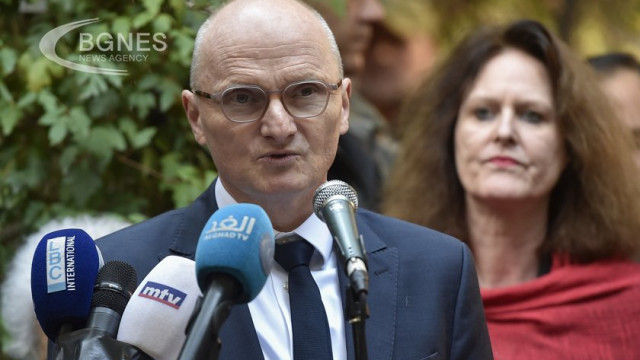Berlin appreciates Greece's efforts to limit migrant flows to the European Union, but hopes to discuss ways to reduce secondary migration to Germany, the country's new ambassador to Greece Andreas Kindl says in his first interview with Kathimerini, taking up his new post in Athens.
He stressed that Germany wants changes to the way the EU makes decisions related to foreign policy and civil defense so that they can be taken with an enhanced majority rather than requiring unanimous support.
Greek Prime Minister Kyriakos Mitsotakis held talks with German Chancellor Olaf Scholz in Berlin just a few days ago. Does the positive atmosphere of this meeting reflect a change in the mood of Greek-German relations today?
"Greek-German relations go back a long time and are close, complex and multifaceted. The recent visit of Prime Minister Mitsotakis was a particularly positive confirmation of our good relations. I am very happy to start my mandate in Athens in such a favorable atmosphere, and I will do everything in our strengths to further strengthen bilateral ties. We are of the same opinion on many issues, especially within the EU but also in other international forums, and we act together. The fact that we agree to have constructive discussions on important issues such as climate change, immigration, EU reform and the further development of the international order, is very encouraging. The pandemic has shown us how dependent we are on supply chains, but also how vulnerable these chains are. The Russian attack on Ukraine has shown once again, that there are still countries like Russia that have benefited greatly from a credible and rules-based international order, but do not respect those rules. China also challenges this order and this forces us in the EU to adopt measures aimed at improving the resilience of our economies. Russia's aggression towards Ukraine and the conflict caused by the particularly barbaric attack of the terrorist group "Hamas" against Israel in the Middle East are further exacerbated by aggressive communications, by fake news, whose aim is to destabilize our democracies. This is another challenge that we have to deal with"./BGNES
Germany's new ambassador in Athens: We hope Greece will limit migrant flows







